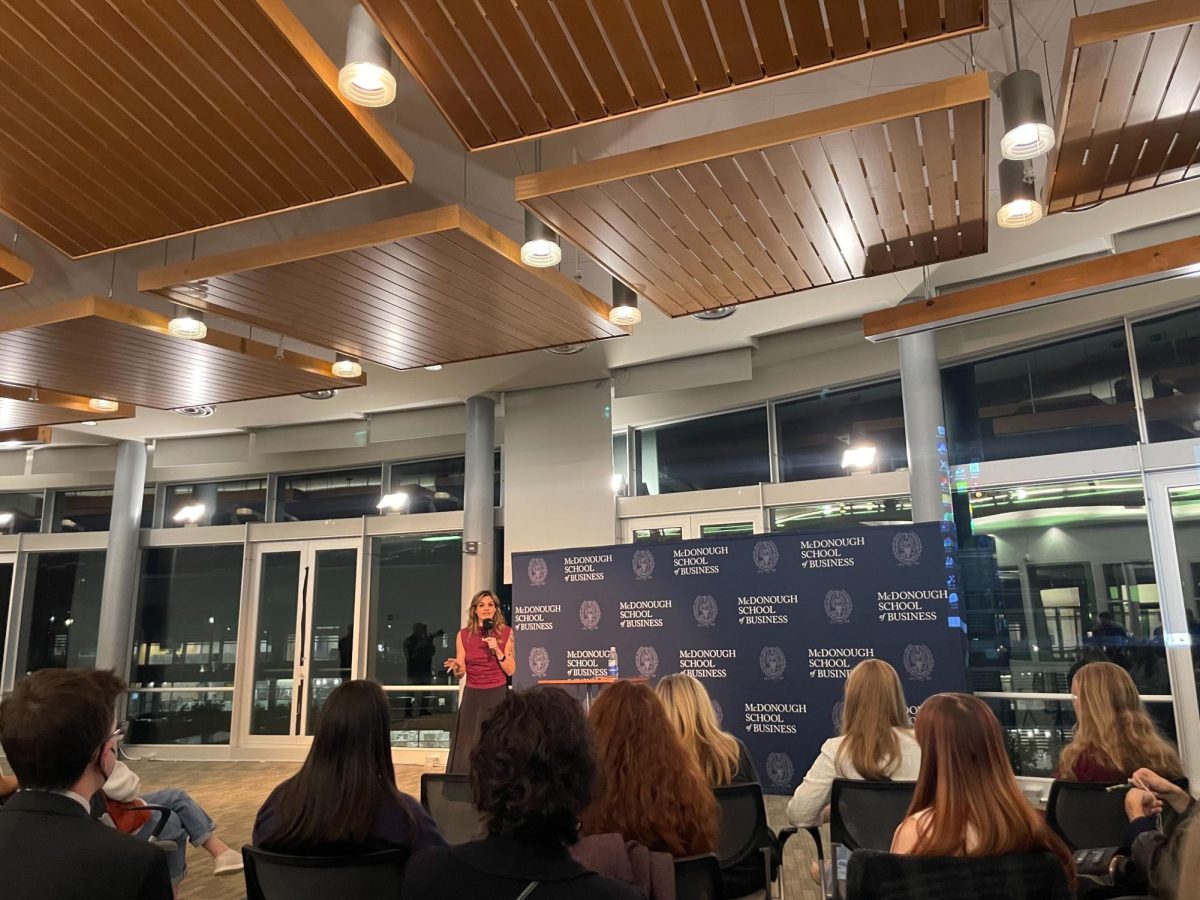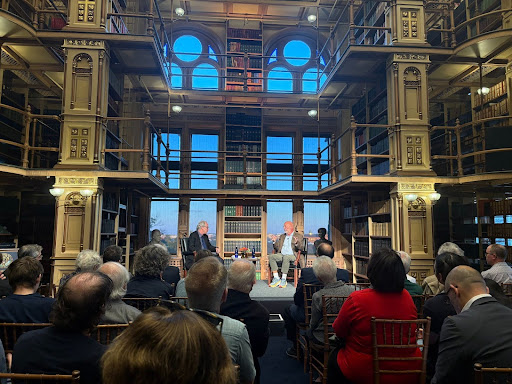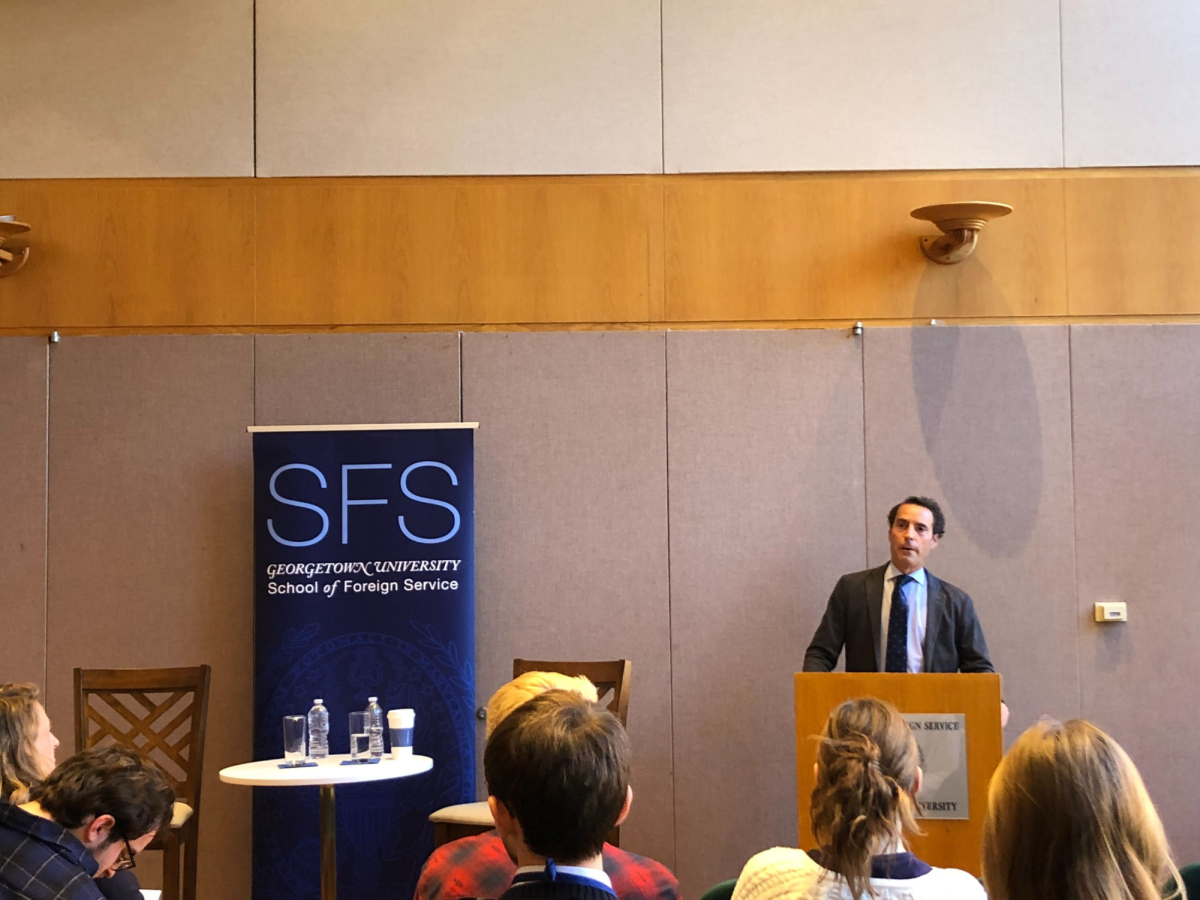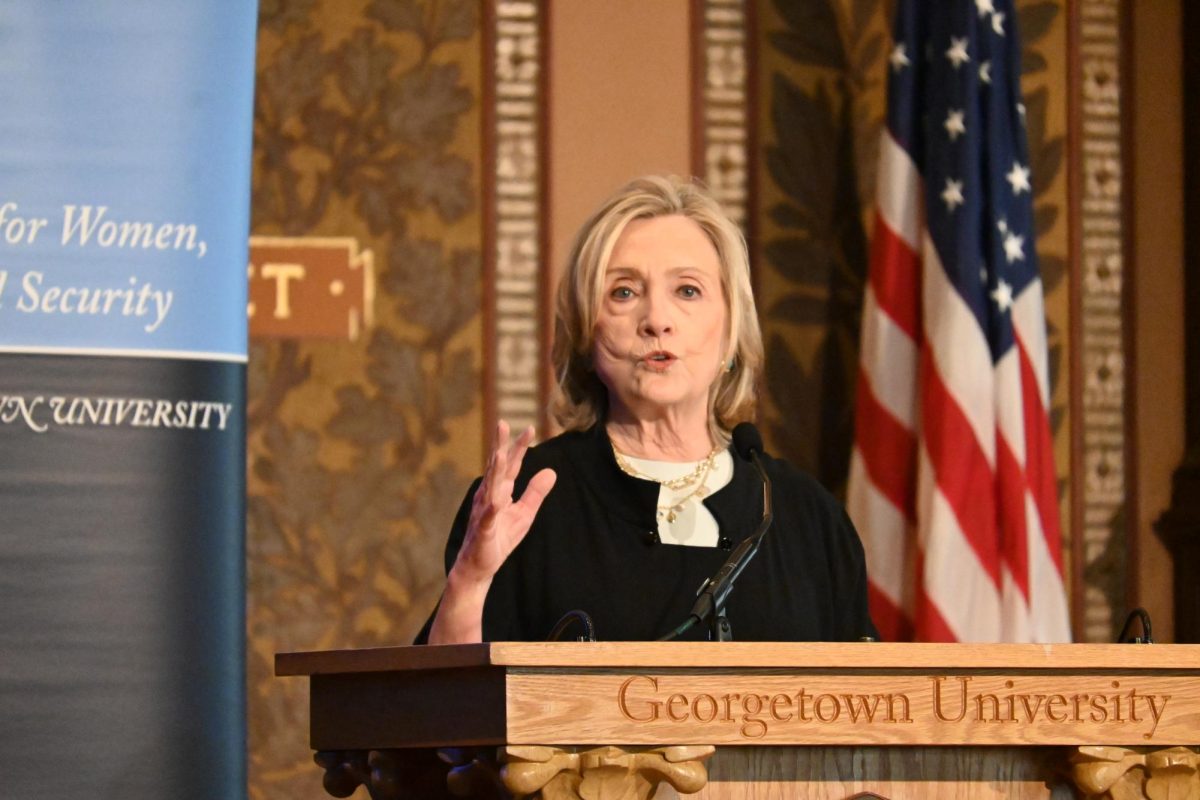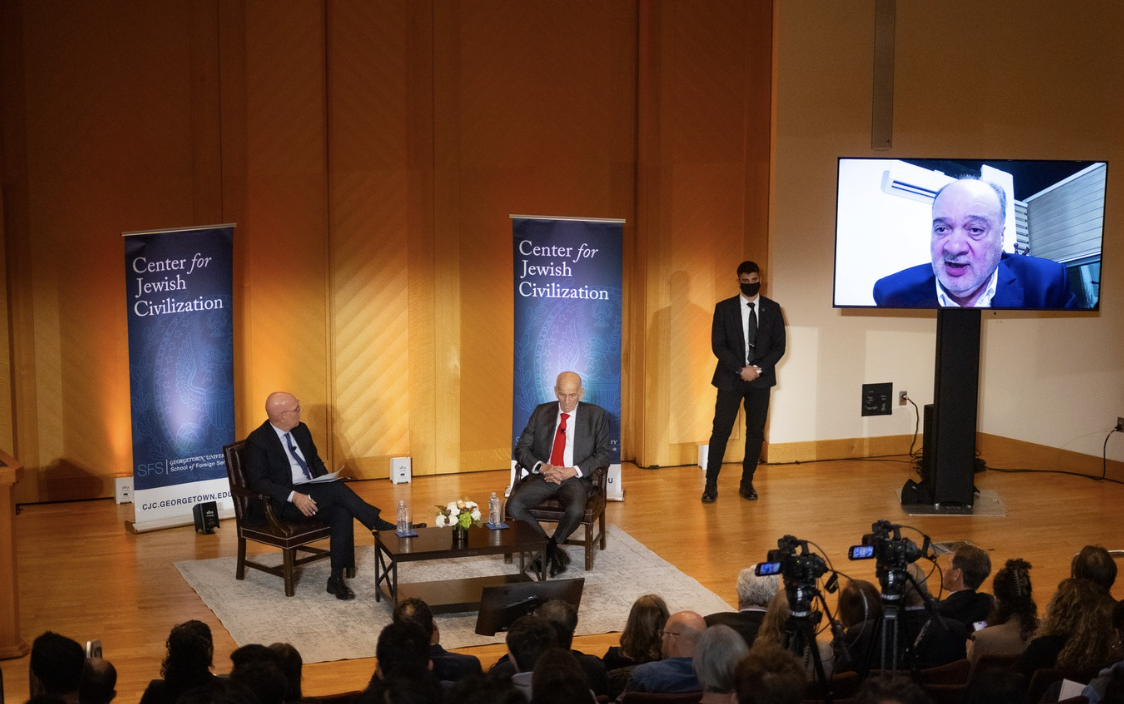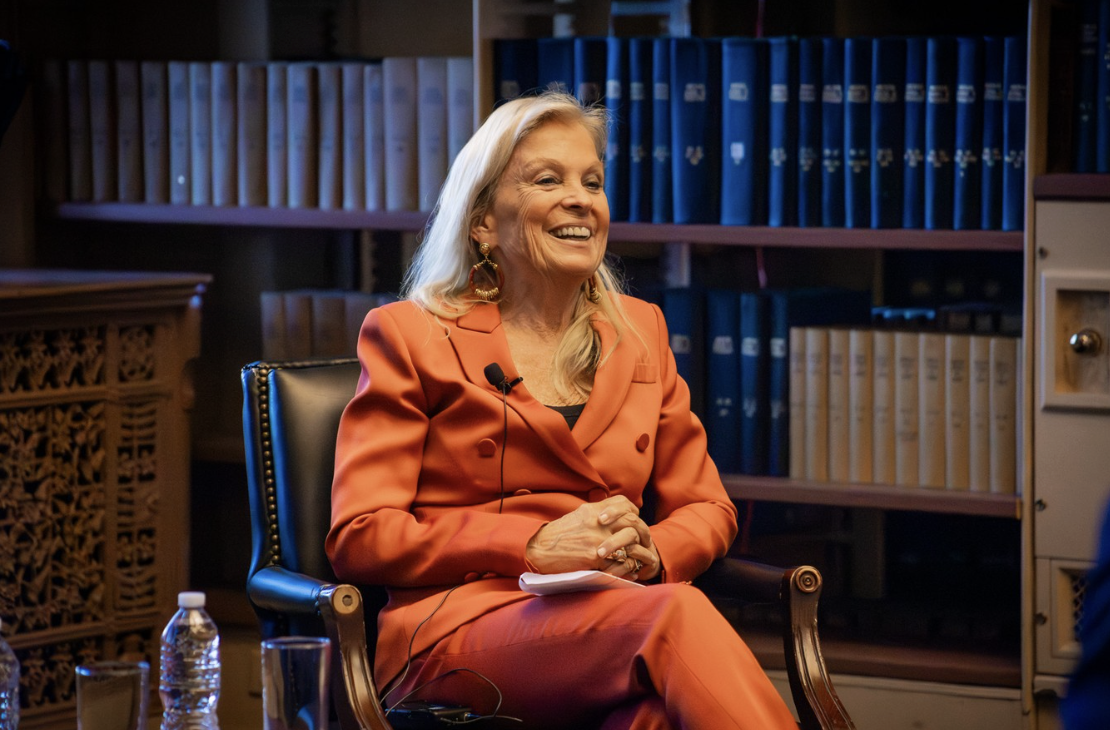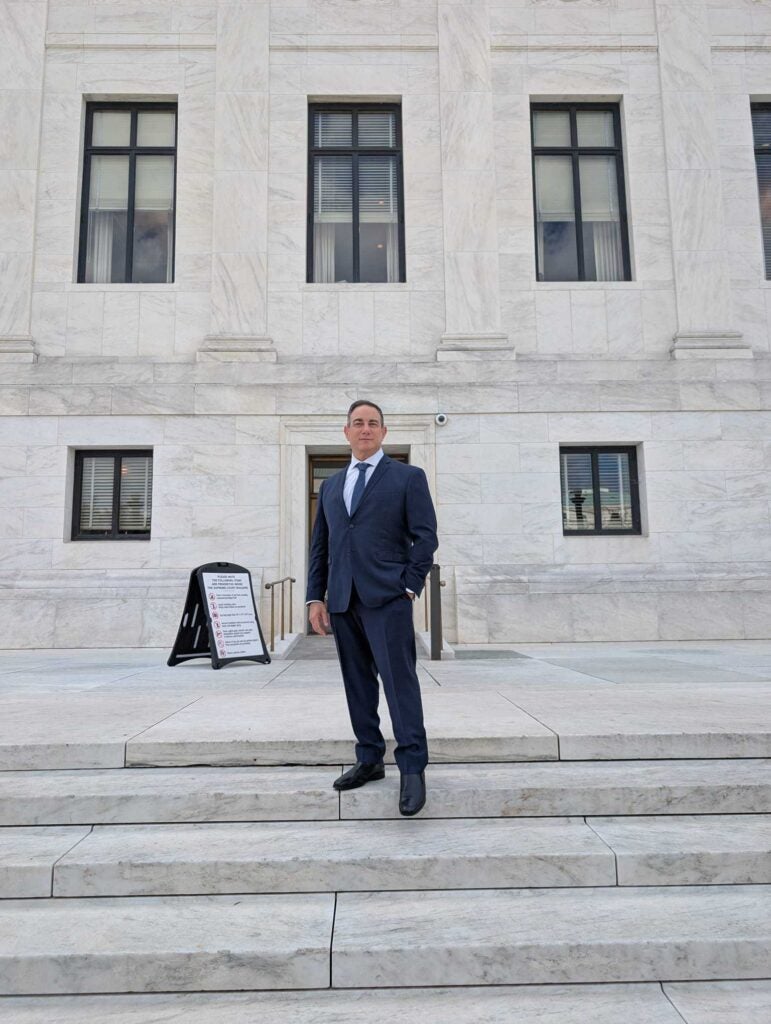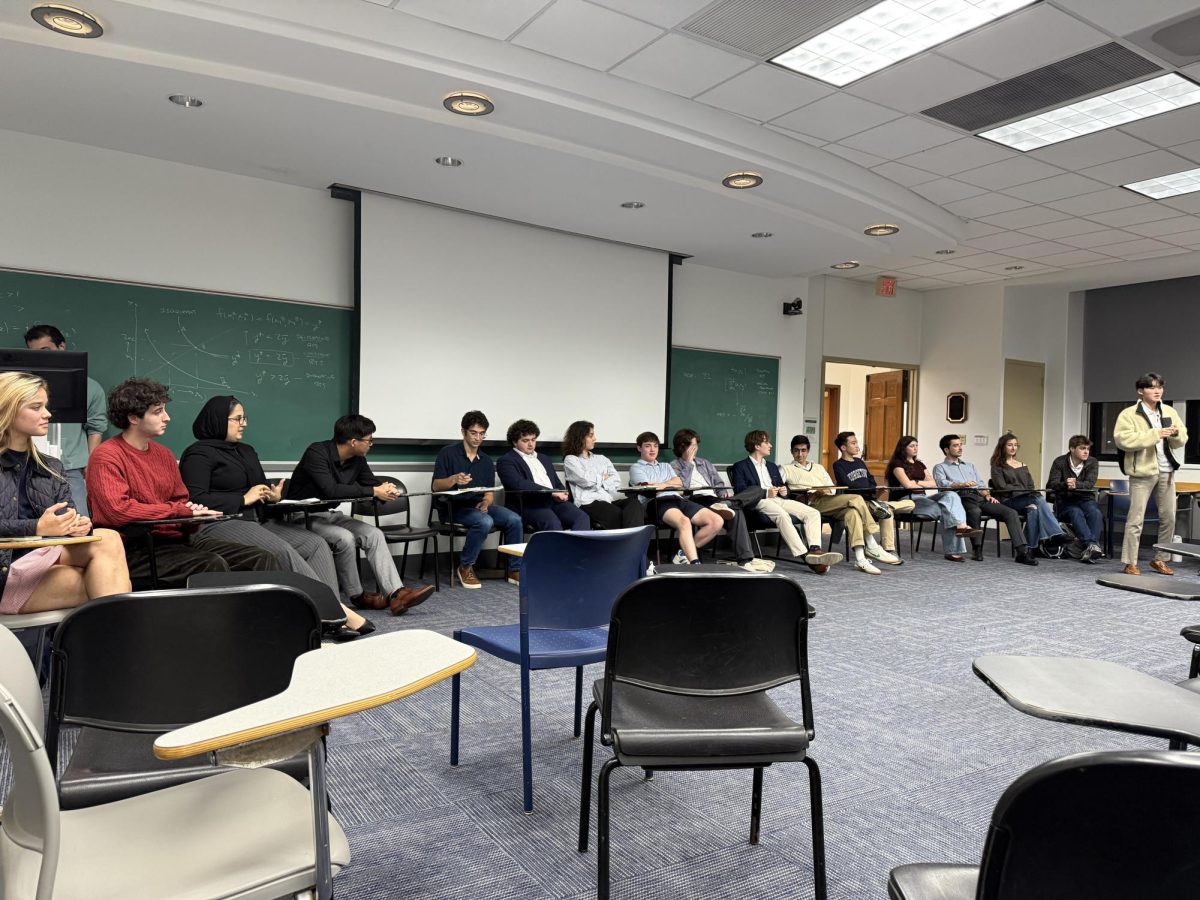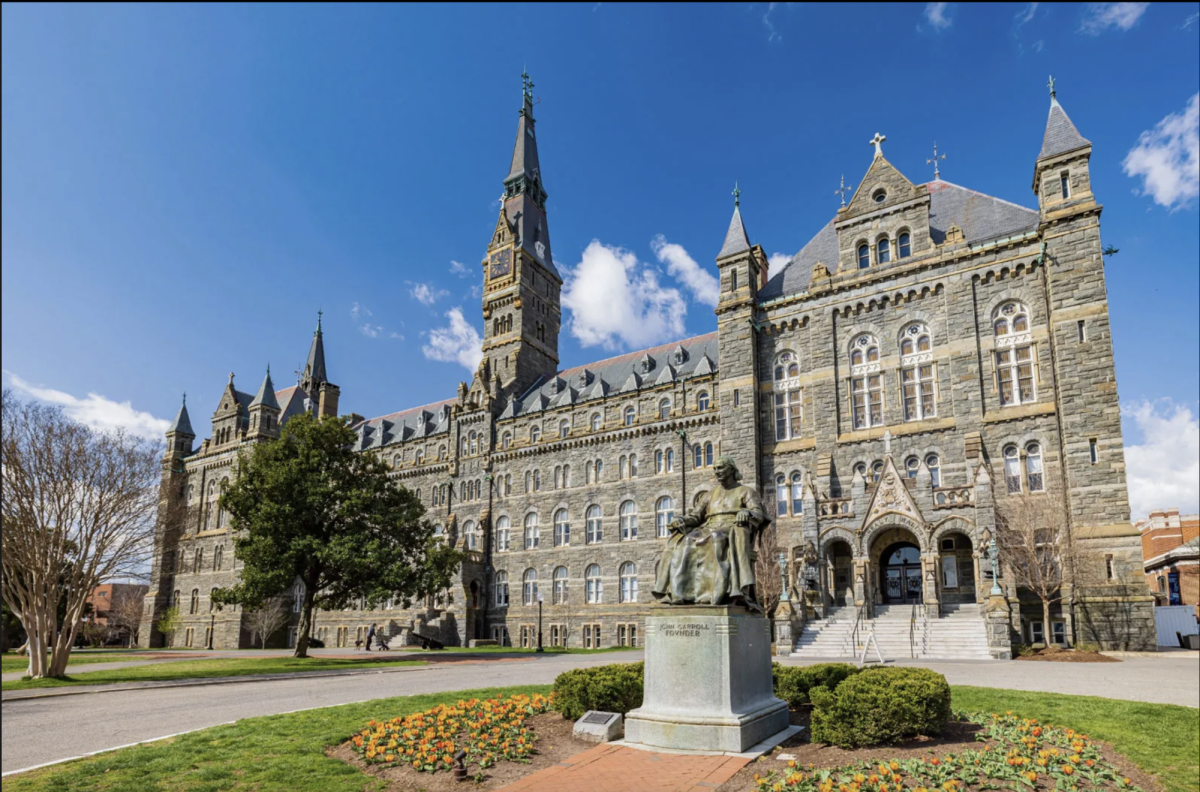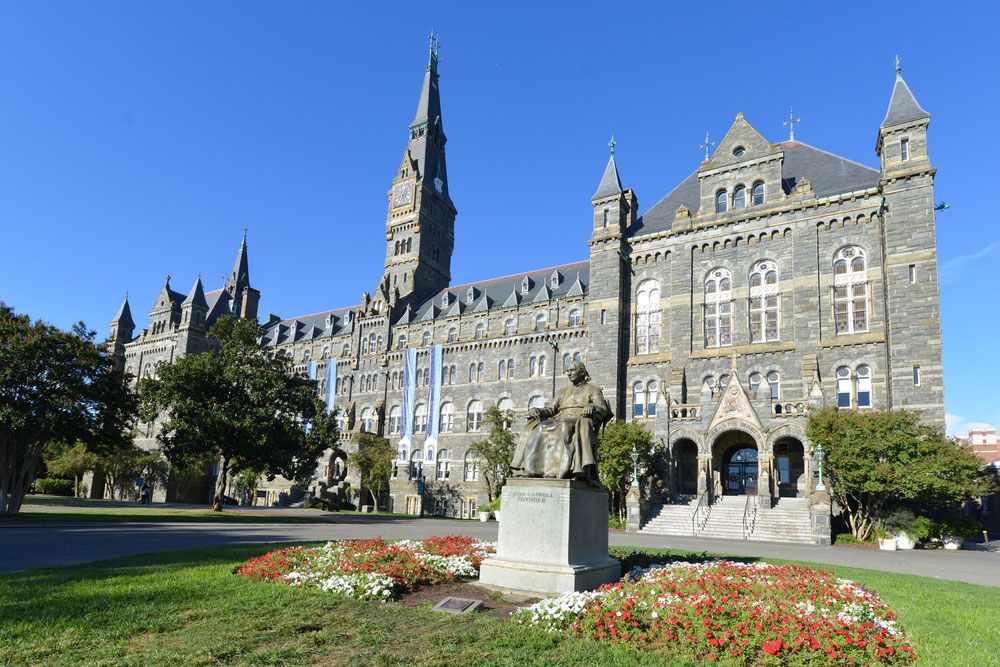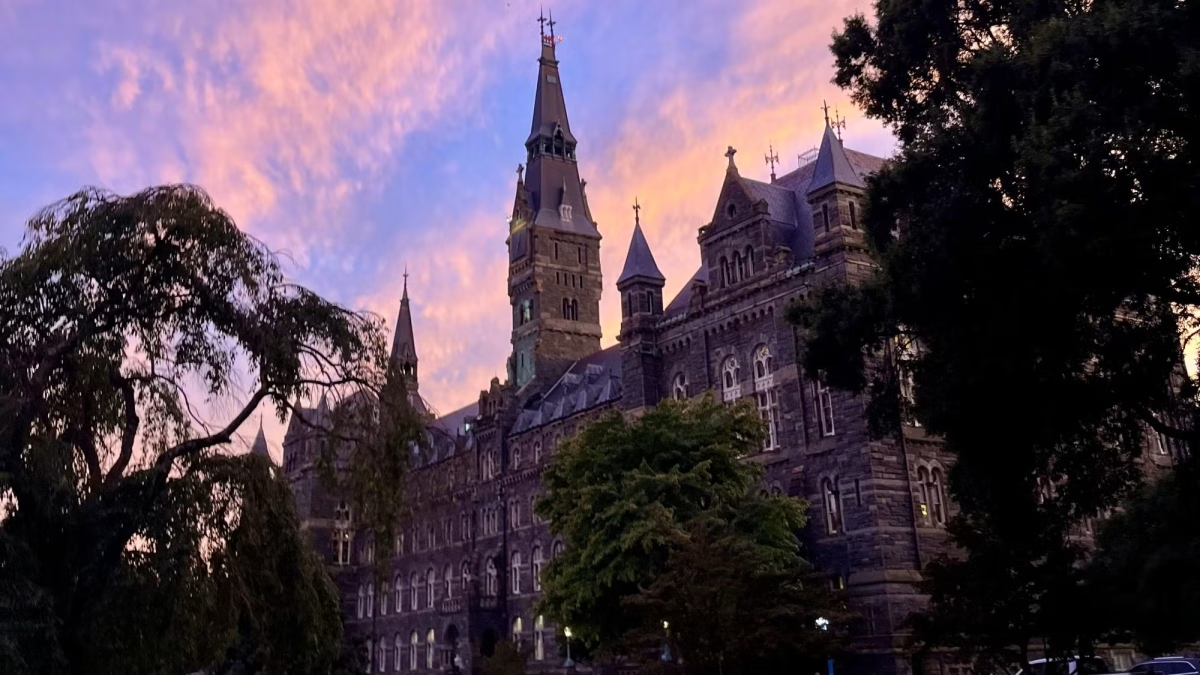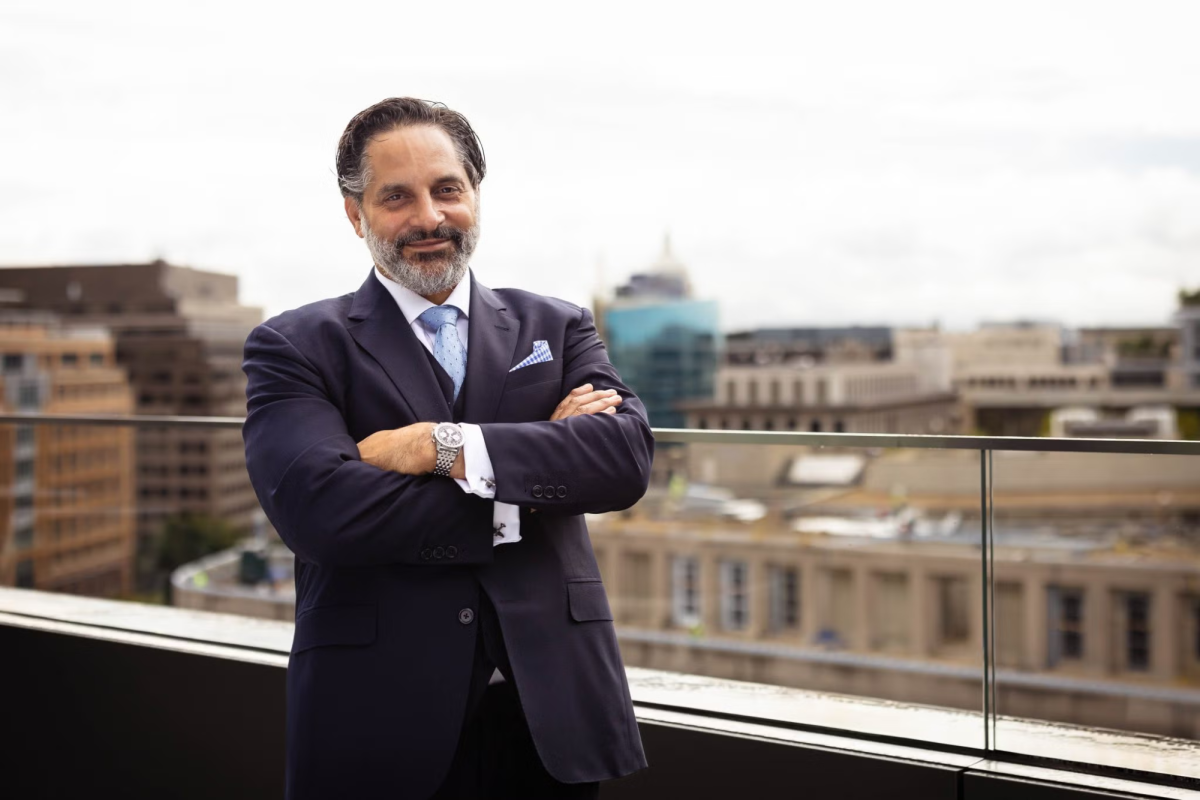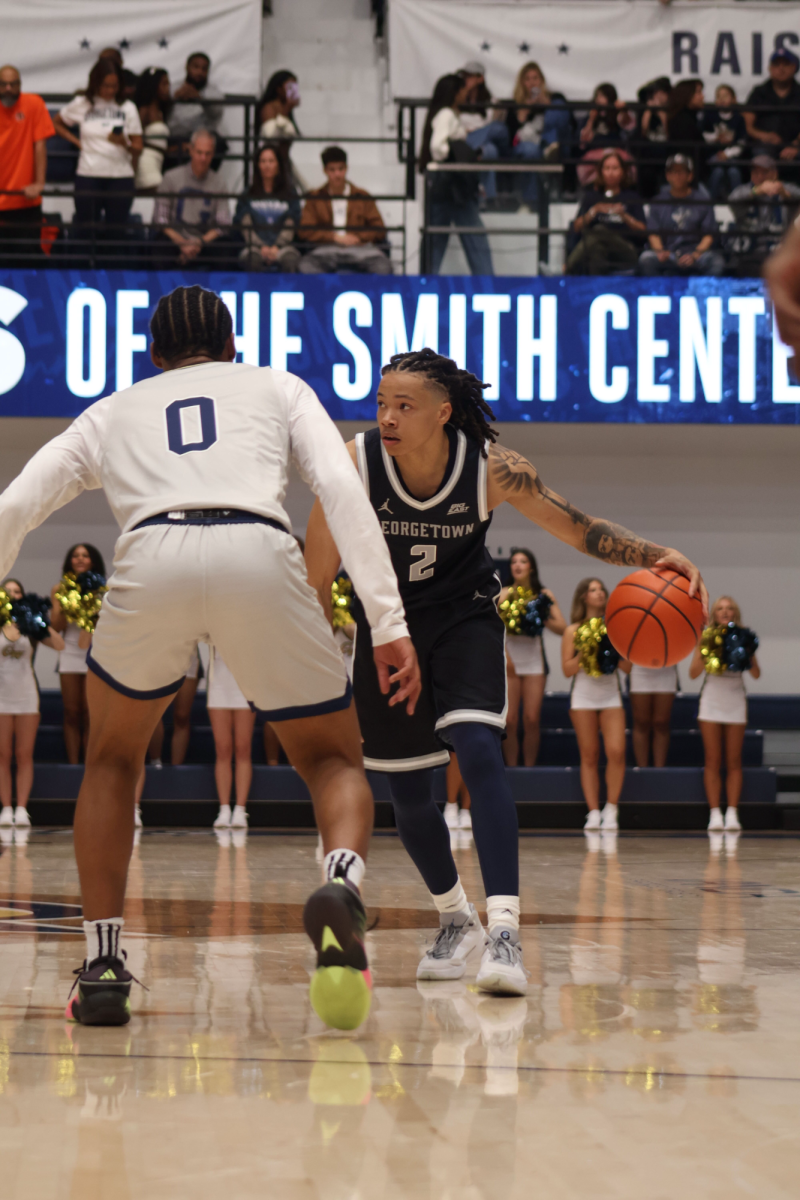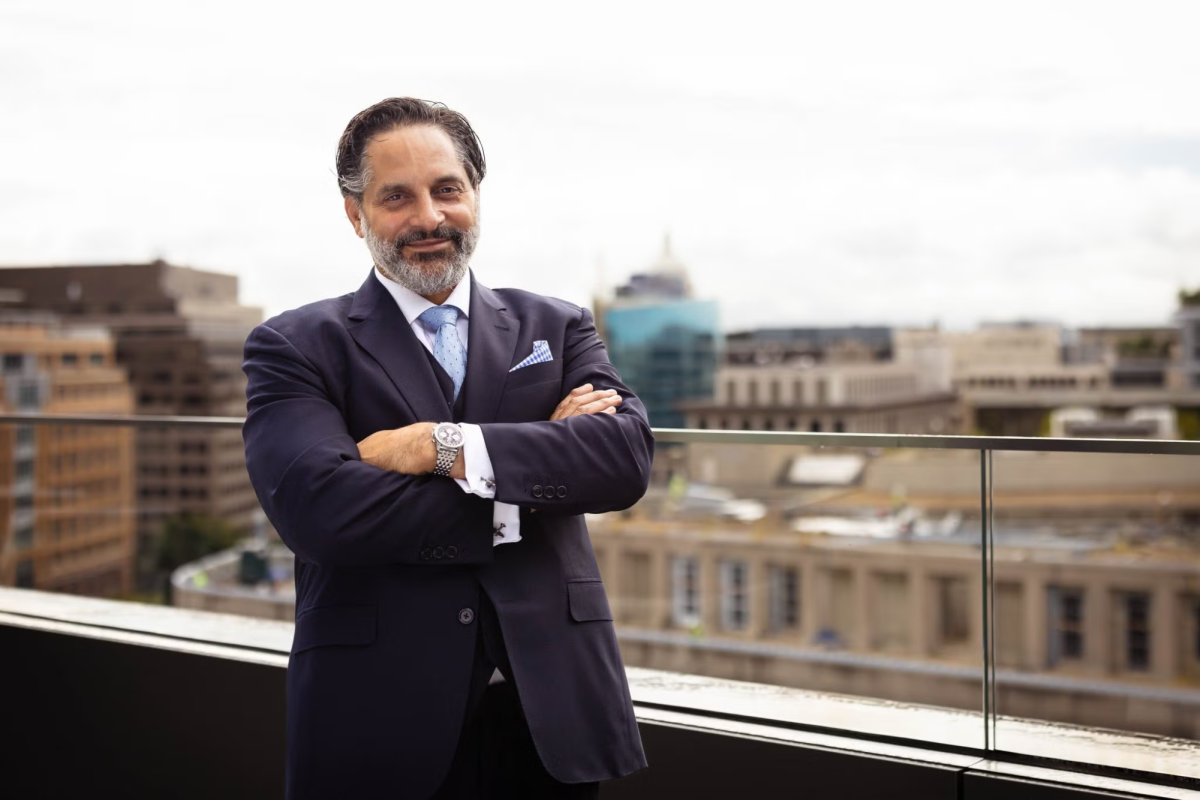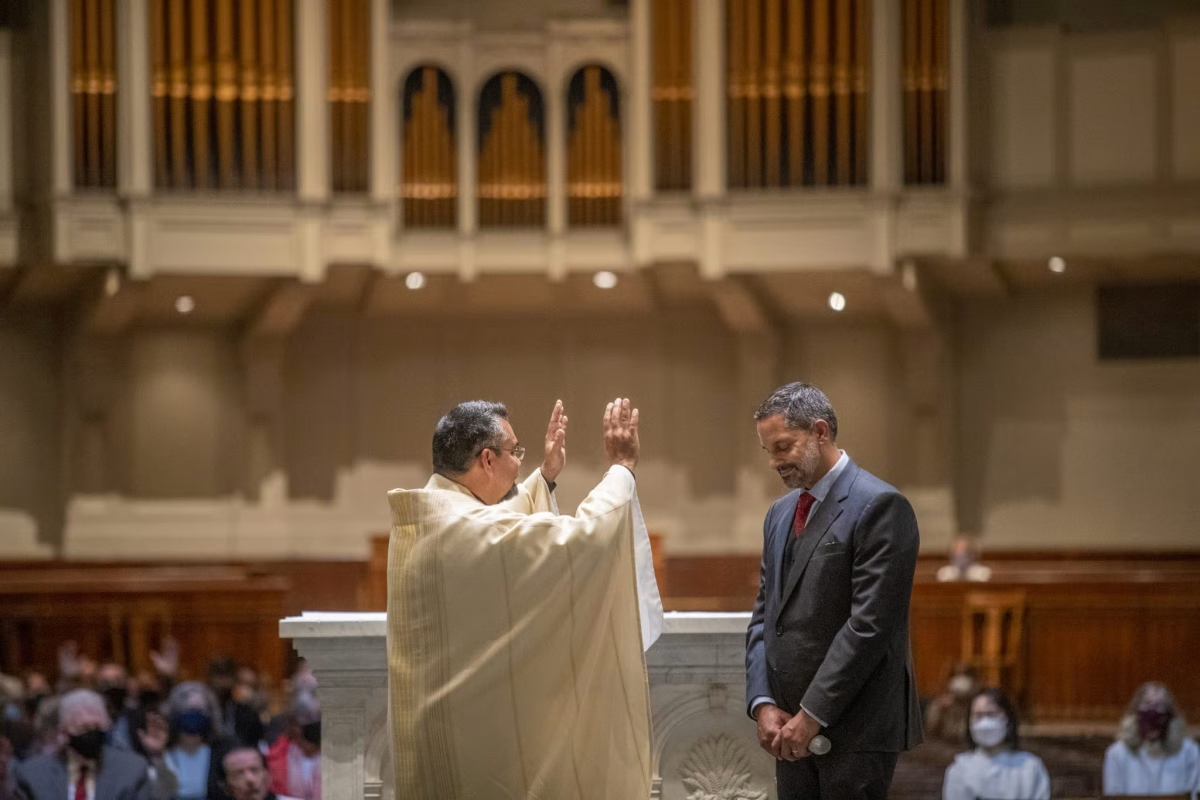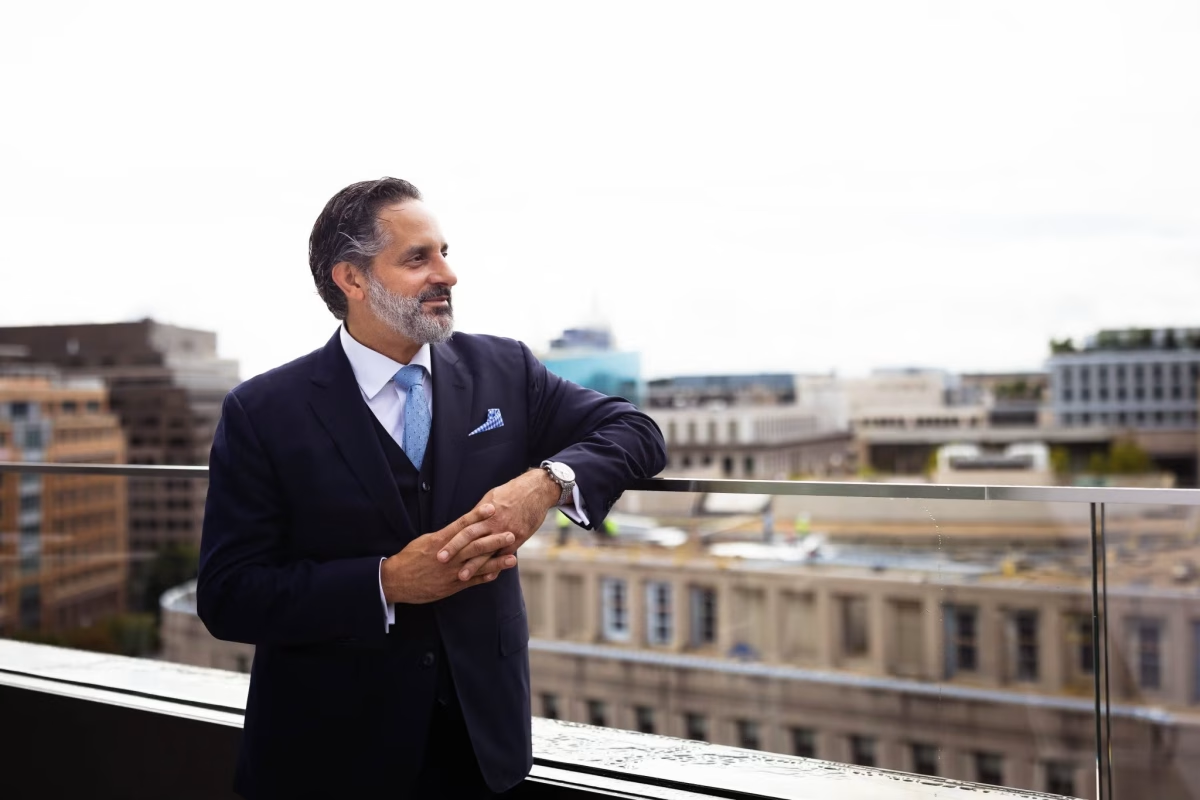Anthony Fauci criticized the federal government’s public health attitude, growing skepticism of science and health misinformation in an Oct. 23 event at Georgetown University.
Fauci, who ran the National Institute of Allergy and Infectious Diseases, a lead agency in the National Institutes of Health (NIH), for over 35 years, warned about the dangers of medical misinformation on social media, criticized federal research cuts and speculated about the future of infectious diseases and pandemics. Norah O’Donnell (CAS ’95, GRD ’03), a senior news correspondent at CBS News, interviewed Fauci, who is also a distinguished professor at Georgetown, the university’s highest professional honor.
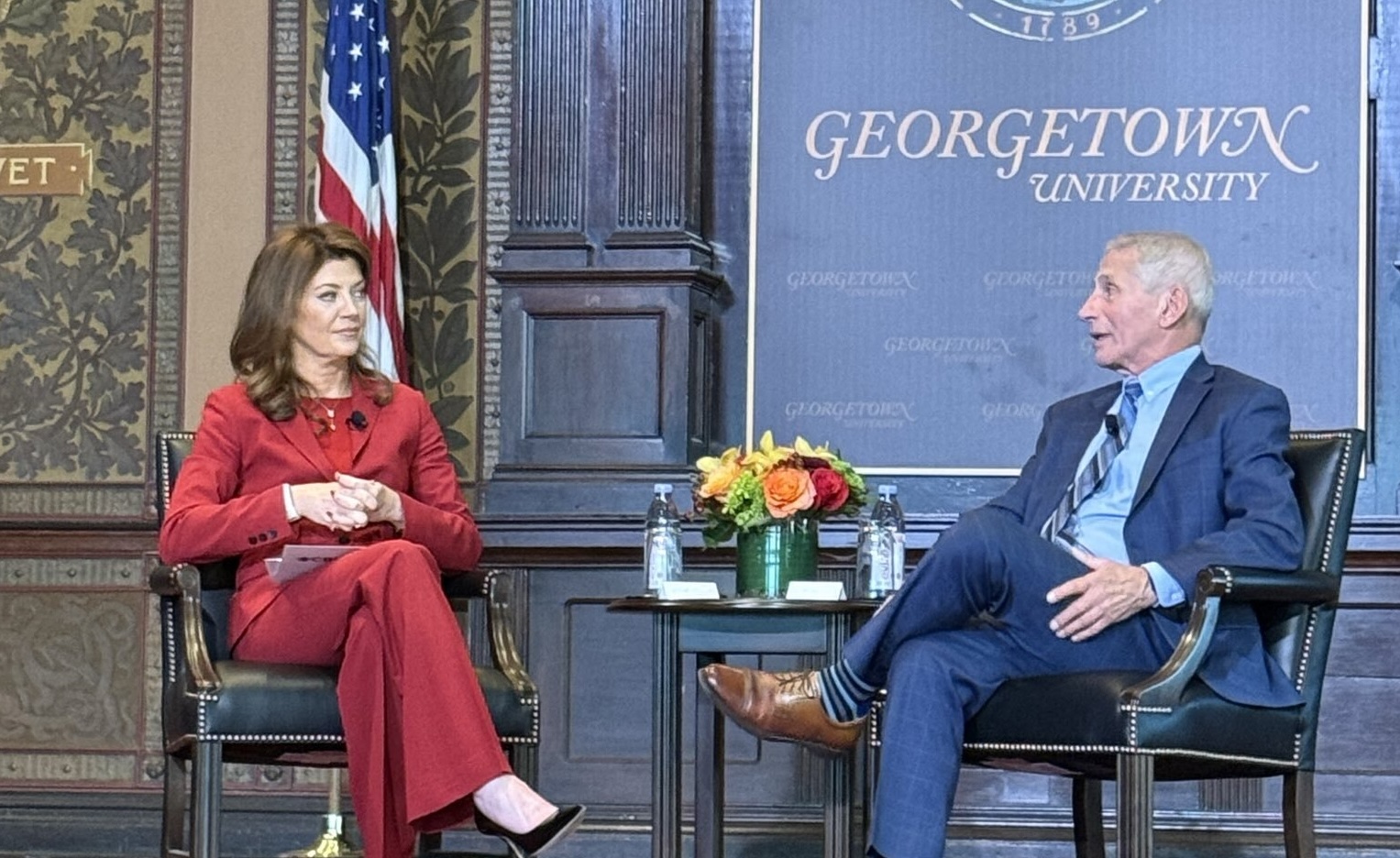
Fauci said he finds changing federal attitudes toward health science especially concerning.
“The thing that pains me and worries me more than anything else is the lack of trust and the vilification of science and scientists,” Fauci said at the event.
Fauci said the Centers for Disease Control and Prevention (CDC) employee firings and cuts to government agency budgets have made him concerned that the United States is unprepared for another pandemic.
“We’re not prepared because we’re pulling back on scientists, and you don’t need me to tell you — the place I lived for 54 years, they’re firing scientists,” Fauci said at the event. “The CDC is having all of its center people essentially be removed and be replaced by people who have political connections. That’s not the way you scientifically prepare for the next pandemic.”
Secretary of Health and Human Services Robert F. Kennedy Jr., who oversees the CDC, has laid off thousands of workers, fired senior officials and faced accusations of corruption since beginning his tenure in January.
Fauci said his partnerships with politicians, particularly former President George W. Bush, were crucial in combating the autoimmune disease AIDS, pointing to the increase in countries working with the President’s Emergency Plan for AIDS Relief (PEPFAR), a global program started in 2003 that Fauci helped spearhead.
“If you fast forward 25 years now, there are, instead of 15 countries, 50 countries, $110 billion, and during that period of time, the program has saved 26 million lives globally,” Fauci said. “That would never have happened had it not been for the feeling and the leadership of a conservative Republican President George W. Bush.”
Fauci added that the United States’ decisions to withdraw support for international health institutions, including the World Health Organization (WHO), the Vaccine Alliance (GAVI) and PEPFAR, will harm the nation’s reputation.
“The idea of pulling back from WHO, pulling back from GAVI and now pulling back from PEPFAR is something that I think years from now, history is not going to judge us very favorably for doing that,” Fauci said.
Fauci joined the NIH in 1968 and led the National Institute of Allergy and Infectious Diseases from 1984 to 2022, when he joined Georgetown as a distinguished professor in the School of Medicine and McCourt School of Public Policy. Throughout his career, he led the United States’ response to the AIDS epidemic and the COVID-19 pandemic, becoming one of the country’s top infectious disease experts.
Fauci said his decision to pivot to studying HIV in 1981 perplexed some senior NIH officials who thought it was not worth abandoning his previous research on the immune system and inflammatory diseases.
“My mentors at the NIH thought I was making a career-destroying decision,” Fauci said. “They said, ‘Why are you stopping what you’re doing so successfully and devoting all of your time on studying, caring for and doing whatever research you can with these individuals?’ I said this was a challenge that I really could not, could not walk away from.”
O’Donnell said Fauci’s HIV/AIDS work changed how experts understood it and helped form public policy.
“It’s such an incredible success and has saved millions and millions of lives,” O’Donnell said at the event.
Fauci also warned about increasing misinformation about science, health policy and vaccines amid declining trust in medicine.
Fauci said social media helps push misinformation, hurting the public’s trust in doctors and scientists.
“The thing that pains me and worries me more than anything else is the lack of trust and the vilification of science and scientists, which is amplified by social media,” Fauci said. “Things that are completely outlandish, once they get into the silos of social media, become true for an astoundingly and frighteningly large number of people. When you accept the normalization of untruths, then nothing is true. And when nothing is true, the confidence that people have in science and the trust in science essentially disappear.”
Alessandra Figueroa (SFS ’28), an international student from the Philippines who attended the event, said Fauci’s concern over social media resonated with her as she has seen it in her own country.
“A lot of propaganda is spread through social media, so I could definitely relate to his thoughts about that,” Figueroa told The Hoya.
Anti-vaccine misinformation spread in the Philippines in 2020 and 2021, fueled by a United States disinformation campaign, according to an investigation from Reuters.
Fauci said he is worried about diseases from the past returning to the United States, such as measles, pertussis, rubella and polio.
“My biggest fear is that we are going to see a re-emergence of things that were responsible for the unnecessary death, mostly of children, but also of adults, before the era of vaccines,” Fauci said.
Vaccination rates across the United States have dropped in recent years, prompting some diseases, such as measles, to resurge.
Fauci said when confronting misinformation among patients, he prefers to take a compassionate approach.
“You’ve got to be very gentle in trying to guide them through the process of what is the evidence upon which you’re making this decision,” Fauci said. “Many people just need their questions answered, because when you talk about mothers and fathers and families who want their children vaccinated, they may or may not want the children vaccinated, but they want their children to be healthy.”
Kailee Fino (CAS ’29), a pre-medical student who attended the event, said she appreciated Fauci’s comments about having empathy for patients.
“In today’s modern medicine world, there’s just so much corporatism, so much ‘here’s your slot, you get a 15-minute patient consult,’” Fino told The Hoya. “A lot of that personal connection is being lost, and I think medicine is suffering for that. Seeing that people, even at the top of medicine, care so deeply, is really refreshing.”
Fauci said young people should continue pursuing careers in public health or medicine because he believes the government must eventually shift course.
“Please don’t give up, particularly the young people,” Fauci said. “We need you. You are the future. The worst thing that could happen is that people pull back and say, ‘Well, this is terrible. I’m going to go do something else.’ This is not going to be sustainable, it can’t be.”


